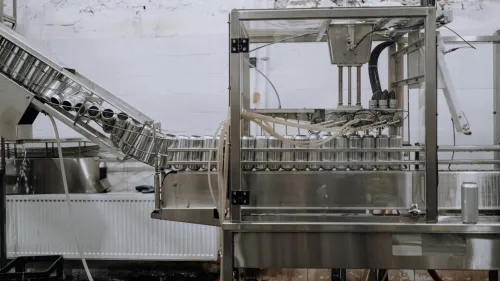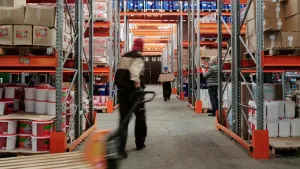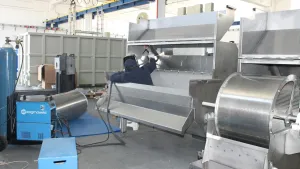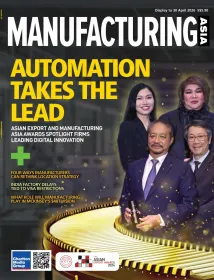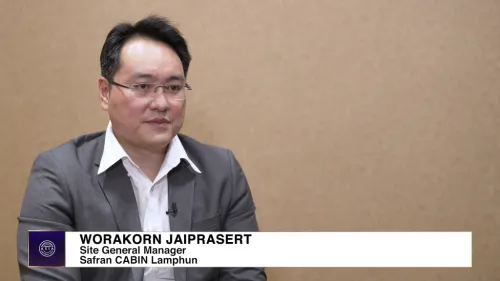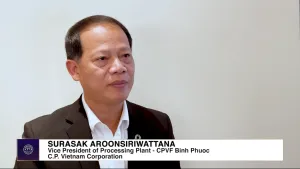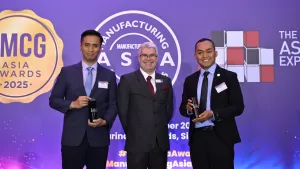
Saving costs no longer enough for companies to be sustainable, says KPMG Partner
This is amidst the manufacturing sector’s huge contribution to greenhouse gas emissions.
Wu Hong, Chiu, Head of Private Enterprise at KPMG in Singapore, oversees a team that engages with the local enterprises here. In particular, Mr Chiu looks into family businesses, innovative startups and emerging enterprises (also known as high-growth companies) to address their needs in their pursuit of growth. He has been involved in various projects in the enterprise sector over the years, most notably the annual Enterprise 50 (E50) Awards. The E50 Awards recognise the top 50 privately-owned local enterprises in Singapore
Mr Chiu is also a Tax Partner. He has over 30 years of Singapore and international tax experience, advising on tax-efficient structures, cross-border transactions, and mergers and acquisitions deals for local and multinational companies, amongst others. He currently leads the company’s tax team in the infrastructure, manufacturing, transport, and logistics sectors and is actively involved in tax compliance and advisory services of the KPMG Singapore Tax Practice, where he has a diverse portfolio of clientele.
Wu Hong has also advised numerous multinational clients to evaluate tax-efficient alternatives, which includes planning and implementing of global supply chain strategies and intellectual property bifurcation. At the same time, he has assisted clients with applications and negotiations with the Singapore tax authorities and relevant government agencies for tax rulings and tax incentives.
As businesses gradually return to normal, Wu Hong noted that finding ways to increase cost savings and revenue is no longer sufficient for a company to be sustainable, as he places greater emphasis on Environmental, Social, and Governance (ESG) programmes and the fact that the manufacturing sector is known to be one of the largest contributors to greenhouse gas emissions.
“Sustainable practices must be integrated into every manufacturer’s business strategy for them to continue achieving desirable financial performance and value creation,” he said.
Wu Hong sat down with Singapore Business Review to discuss how the rapid digital transformation affects Singapore businesses today, as well as the manufacturing industry’s role in furthering Singapore’s sustainability and ESG measures.
How is digital transformation affecting Singapore's manufacturing sector? What do you think are its implications for the progress of the sector and city-state?
Since the start of the COVID-19 pandemic, Singapore’s manufacturing sector has been pushed to accelerate the adoption and integration of digital tools into their businesses. The rapid shift towards digitalisation has nudged manufacturing companies to take a relook at their business model and re-evaluate how it can create value in the changing market space. As a result, the existing skillsets of the employees are no longer sufficient and the need to upskill to adapt to the new digital ways has also led to the inception of new courses to impart new knowledge to the existing workforce. The Singapore government’s continued support on the digital transformation front outlines Singapore’s willingness to embrace digital transformation, and this is the direction in which the city-state is heading towards.
As more companies adopt digital transformation, those that do so will stand to reap the benefits and also seize the opportunities that come along with it. Those that are not willing to do so will likely be phased out in the time to come. It is no longer an option to adopt digital transformation; rather, it is a to-do task for future survival.
In terms of digital transformation, Singapore enterprises in the manufacturing sector can explore the setting up of smart factories that incorporate technologies such as IoT sensors, AI, RPA, and machine learning. This is to keep pace with the innovation revolution of Industry 4.0 and create competitive advantages such that Singapore enterprises continue to be the forerunners in global competition.
Singapore is poised to be a regional player leading Industry 4.0, which will influence various technologies in the next phase of advanced manufacturing. This will help support Singapore to play an important role as a trading hub as well as a platform for international organisations to enter ASEAN as a market and beyond. Examples are the likes of our local precision engineering firms supplying critical key parts to MNCs which are being used in semiconductors, the oil and gas industry, amongst others.
As business operations slowly return to normal, where should manufacturers focus to become more profitable and sustainable in the future? What trends and strategies should they utilise?
As businesses are returning to normal, finding ways to increase cost savings and revenue is no longer sufficient for a business to be sustainable. With a greater emphasis on Environmental, Social, and Governance (ESG) and the fact that the manufacturing sector is known to be one of the largest contributors to greenhouse gas emissions, sustainable practices must be integrated into every manufacturer’s business strategy for them to continue achieving desirable financial performance and value creation. A wide array of digital tools and solutions are available for manufacturers to adopt to assist them in their transition to more sustainable practices. For example, sensors and software are available for manufacturers to install and track their emission levels.
COVID has taught us well to diversify the supply chain. Manufacturers should constantly be mindful not to overly rely on one country as a source of supply or for their customer base. Concentrated risk should be avoided at all times.
Companies shifting towards smart factories that incorporate the latest technologies can yield benefits that enhance profitability and sustainability. Enhanced efficiencies and productivity improvements brought about by automation mean manufacturing operations can be expeditiously completed at a lower cost. Predictive maintenance through data analytics can also be performed to reduce the chance of downtime.
Smart factories also allow manufacturers to customise their products easier as resetting and retooling of equipment can be easily performed through automation. This creates a competitive advantage compared to traditional manufacturers, who face long downtime when making even slight changes to their assembly lines.
3D printing is relevant where construction sectors are adopting 3D printing for the construction of buildings. Robotics is also an area to look out for as we face a global fight for talent on the global manufacturing stage. Skills development will remain key to complementing Industry 4.0 and one area industry players can explore is to engage with the relatively new Advanced Manufacturing Training Academy to see how schools or IHLs can help ensure the manufacturing workforce can continue to stay relevant and be future-ready.
As more industries are urged to employ sustainability and ESG programmes in their operations, what do you think manufacturers can do to keep up? What do you think could be the challenges to this undertaking?
As mentioned earlier, manufacturers have a big role to play in furthering Singapore’s ESG ambitions given that the manufacturing sector is traditionally known to be a large emitter of greenhouse gases. Aside from digital solutions, manufacturers could also look into other areas, such as sourcing for greener products and packaging materials. Nonetheless, it would not be easy for manufacturers to transit and change their operating model overnight into one that is more eco-friendly. However, as long as manufacturers continue to set sustainable goals/targets and work towards them, that will be a huge step forward towards a greener manufacturing landscape in Singapore.
One possible challenge in undertaking ESG in manufacturing is keeping the cost of production low enough so that it makes commercial sense to manufacture the product.
For manufacturing companies, adopting IoT sensors and data analytics, real-time digital data collection means management can analyse information and use it immediately to make crucial operational adjustments to help reduce waste, identify areas to reduce emissions and optimise deliveries to further reduce carbon footprints. However, the high initial costs involved in setting up smart factories can be a challenge for many manufacturers.
Adopting Industry 4.0 hopefully will help manufacturers adopt best practices such as AI, data analytics and IoT which will improve their materials usage and process time. This in turn will set the stage for more resilient supply chains, and organisations can make more informed decisions and optimise themselves for greater efficiency, hence supporting the ESG initiative. As Singapore is a small country, having a good talent pool will remain a concern to support the manufacturing sector as well as equip them with knowledge on how ESG plays an integral and important role in the manufacturing sector.
What key criteria do you consider in selecting the winners of the Made in Singapore Awards and Designed in Singapore Awards this year?
Aside from the four key criteria, I am also looking to see how the participants have integrated ESG into their manufacturing lifecycles as part of their efforts to further Singapore’s ESG ambitions.
Also, as a Made / Designed in Singapore judge, I would like to see evidence of how the product can scale internationally and compete with the other existing products out there if any.
Other areas to consider are the amount of R&D put in and whether patents have been obtained, and if so, in which countries.
I would finally hope to see how an organisation makes a progressive effort to improve its manufacturing process through the adoption of any new technologies / skilled workforce, which may lead to an improvement in productivity or output.
